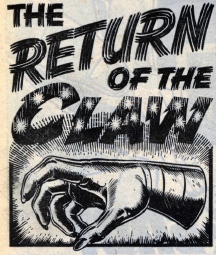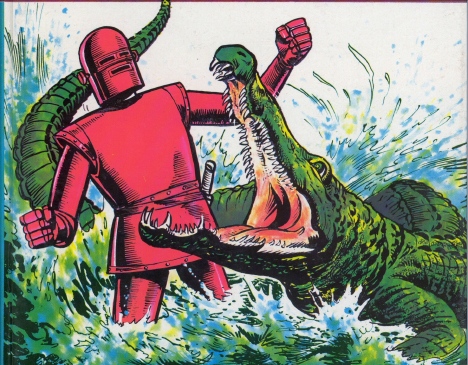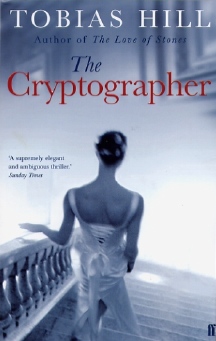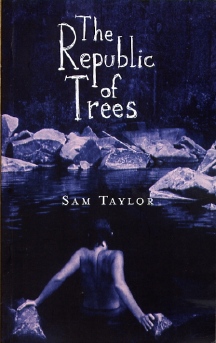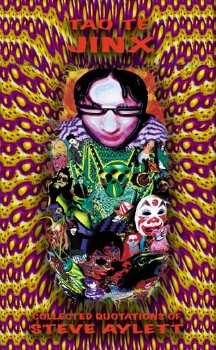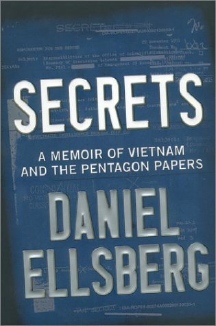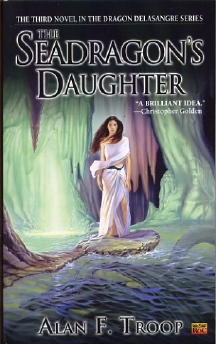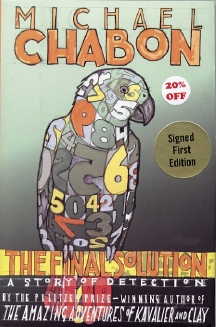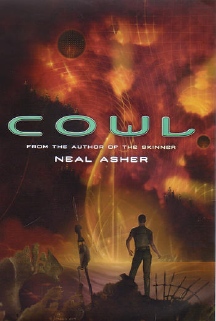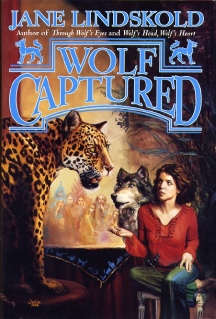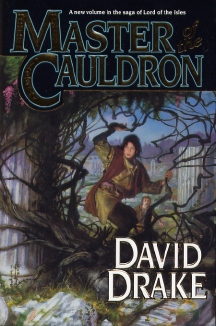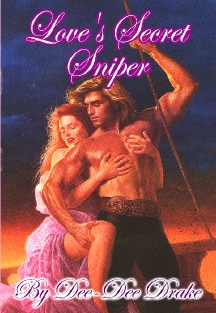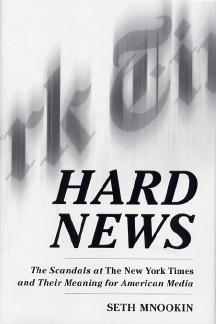|
|
|
This Just In...News from the Agony Column
|
11-26-04: The Return of the THE CLAW; Tobias Hill's 'The Cryptographer' and Sam Taylor's 'The Republic of Trees' |
|||||||
Alan
Moore Resurrects Classic Comics in DC Deal
Now mind you, I'm not unfamiliar with Alan Moore. I read the classic 'Watchmen' as soon as it arrived in omnibus form, and thoroughly enjoyed Moore's visionary writing. Still, Clarke's pronouncement did put me on the alert, and I've kept my eye afield for news of Mr. Moore since. This morning, from the ever-watchful Fortean List, a rugged listmate broke the news of a huge deal that certainly interests me and might interest -- and impact -- a lot of readers. What it amount to is this; DC has just purchased the rights to a whole library of classic comic characters from the British comics of the 1960's and 1970's, owned now by IPC. These include 'The Steel Claw', 'The Spider', and 'Kelly's Eye'. They're going to resurrect these classics under their new WildStorm Imprint.
Where it gets really interesting is where Alan Moore comes into the picture. Moore will plot one of the first projects, 'Albion', a six-part, monthly series which will be scripted by his daughter, Leah Moore along with John Reppion, and illustrated by Shane Oakley. Here's what IPC Publisher Andrew Sumner said about this in a press release: "The fact that Alan Moore has devised Albion as a vehicle for resurrecting IPC's library of iconic British adventure heroes is the best possible outcome for our deal with WildStorm. This is the biggest piece of UK comics news in 25 years. A whole generation of British males grew up relishing the adventures of IPC’s fantastically macabre superheroes and the cultural significance of their comeback, after more than two decades, is enormous."
We're told that future projects will involve illustrator Dave Gibbons, who created the visuals for Moore's iconic 'Watchmen' tale. And while I'm not much of a comics guy myself -- yet -- between this and Richard K. Morgan's 'The Black Widow' I'm thinking of giving these a try. |
|||||||
Faber & Faber Blurs the Lines of Literature and Genre Fiction
'The Cryptographer' is John Law, code maker, code break and the world's first quadrillionaire. We know it's going to happen, it's only a matter of time. And in that time, in the indeterminate near future, Law has made his fortune by creating an unbreakable code, which becomes the keystone for a complete conversion to electronic money. The man of course is a mystery, and when Revenue sends in A2 Grade Tax Inspector Anna Moore, they're hoping for more than an audit. From what I can discern, this is not a toe-tapping novel of suspense and science fiction, but rather, on the poetic and literary side with a backdrop awash in nearly-Sfnal speculation. Mostly what it appears to be on reading is gorgeous, finely wrought prose in search of a certain mood level, which then gets ratcheted up as the novel progresses. Law looks to be a near-future Gatsby, attitude-heavy and action-light. For those of us who like our poetry on the prose side and our science fiction strictly in the background, 'The Cryptographer' looks to be a perfect choice. Call if near-future F. Scott Fitzgerald and expect to be impressed by the prose. Hill has published several novels and a book of poems, so the "prose poetry" description seems likely to be spot-on.
Joy's disrupts the uneasy balance, infuses the group with increasingly strict levels of discipline and ups the obsessive, erotic level of the relationships between the young Citizens. Dystopian nightmare bleeds into the reality of the forest and the coded language of the group takes on a macabre tone. This does not bode well. It Will End In Tears. Of course, you don't have to get too far in to the novel to find head on a stick. And any novel that features head on a stick and Jean Jacques-Rousseau is a reason to give thanks to the writer and HWMNBNBMBT. Life is short, brutish and unpleasant but for those brief interludes when we can enjoy the company of our families, our friends and the pastime of reading great, weird novels. You know, even if the novels are not the be-all and end-all of literary experience, they're also not what you're going to find floating in front of your face at just about any bookstore. You'll need to search them out, special order them order them over the Internet. And in the process of so doing, you may come across something else, something fine and rare. That's your book. Read it, enjoy it and write me to tell me about it. |
|
11-25-04: Give Thanks for Steve Aylett |
|||
Heal
Thyself With the Tao Te Jinx
"Who--" Shut the hell up and listen, that's who. Anyone ever tell you it's not polite to talk with your mouth full? Well, they should have. You're familiar with Aylett's name because it's on the back cover of 'The Thackery T. Lambshead Pocket Guide to Eccentric and Discredited Diseases'. But you also might be familiar with it -- or you'll wish you could be -- for his series of silly novels about Accomplice, "a languid semi-tropical republic which roofs a world of conspiring demons". Starting with 'Only An Alligator', then followed by 'The Velocity Gospel', 'Dummyland' (currently his favorite of his own books) and finishing up with 'Karloff's Circus', 'The Accomplice' novels are the kinds of books that ask the important questions: "Where does all the blood go? Who will clear away the floor lobsters?" You get the idea. Or maybe you don't. So let's say you take an angry young(ish) man, make him memorize 'Alice in Wonderland' and 'Fear and Loathing in Las Vegas' and uh, let's see, uh, a personal version of all the 'DiscWorld' books and all the 'Hitchhiker's Guide' books, in which the pages have been put in a blender, pureed and re-assembled by the monkeys who recently completed the works of Shakespeare, and you might have a clue. I'd suggest you not antagonize him. They look just like regular domesticated humans, these Steve Ayletts, but the One Hand Clapping Club is stumping to support a petition that would require all Steve Ayletts -- though there's only one, they want to be ABSOLUTELY SURE that all bases are covered -- only to be fed with entrenching tools. Now, I have to warn you. This guy's been described as a "literary terrorist". So when you pick up the 'Tao Te Jinx' (Scar Garden Media / SteveAylett.com, £6.99, Right Goddamned Now), with 550 quotes from his books, you've just turned yourself into a national security issue. You know, I'm thinking this means that you probably don't want this as airport reading, and in fact, you're not likely to find it at the airport. The book includes the aforementioned quotes, plus and I quote here: "Full text of previously uncollected 'Horoscope' and 'Cabell's New Sins’+ intro rant on satire / originality / fury". OK, so why should you listen to him? Here's why (quoting again; this is after all, a book of quotes): I thought things couldn't get any worse - that’s how young I was. The Inflatable Volunteer, Aylett Each sneeze frees a hundred lawyers. Toxicology, Aylett Religion is the opium of the people - and it’s cheaper. Toxicology, Aylett How many times does a man have to shave before his chin gets the message? Slaughtermatic, Aylett You can find a whole heck of a lot about Aylett and his work from his website and you can buy his books from reputable vendors, but they're behind the counters with brown pieces of paper in front of them. What kind of man reads Steve Aylett? Eddie knelt and lifted a rock. ‘Lawyers,’ he whispered. The Inflatable Volunteer, Aylett |
|
11-24-04: Revealing 'Secrets'; Alan F. Troop Brings on the Dragons |
|||
Jenn
Ramage Talks to Daniel Ellsberg
Ellsberg came to town not to sign books, actually, but to speak at the historic Rio Theater. There were no bookstores in Santa Cruz big enough to accommodate the number of residents of Santa Cruz who would want to hear this man speak. 'Secrets' throws light on many very timely issues. With so many comparisons being made between the current war in Iraq and the war in Vietnam -- whether or not those comparisons prove to be informative -- the insights of Ellsberg are particularly compelling. This interview can also be found on the KUSP website, as well as many others that Jenn has done. If you ever run out of interview material to listen to in your car or at work -- no wait, you're not listening at work, I get that -- well, in any event, you can always cruise over to KUSP to find more insightful interviews with authors, and some by me. My contribution to his interview was to extract it from the CD that Jenn provided and 'Save As' MP3 and RealAudio. Your contribution will be made after you listen, by virtue of your better-informed actions in this unpleasantly political world. One of which should, presumably, be to buy Ellsberg's tome. |
|||
'The
Sea Dragon's Daughter'
I enjoyed 'The Dragon Delasangre' immensely, and Katie Dean liked both 'The Dragon Delasangre' and the second in the series, 'Dragon Moon'. Now, Troop has brought us our third novel in the series, 'The Sea Dragon's Daughter' (Roc / Ace / Penguin-Putnam; November 17, 2004; $6.99). And once again we get a chance to visit with Peter Delasangre and his beloved Chloe, as they enjoy life and swallow helpless victims whole when in the dragon-form. But when a mysterious female appears near Peter's island, things look likely to change and not for the better. She's part of a sea-dwelling race of dragons long thought extinct by Peter and his ilk. OK, so that's what's up with the Loch Ness Monster. They’re not extinct, but they are connected to Peter's family. The kind of complications that usually result in casualties will ensue. Troop has a strong hold on an entertaining series here. He's also got a new website, with lots of interesting tidbits and extracts from the novels. If you've read, or are interested in reading the novel, it's worth a look-see. And if you haven't, you might want to give them a try, especially if it's the new, better-informed you who, having listened to Daniel Ellsberg's interview, had concluded that we're all justifiably doomed. A dollop of dragon lore will certainly leave you feeling better than being carpet bombed or having your library reading closely monitored. And if the latter is a worry to you, then this is just the type of book to throw them off your trail. Or trial, come to think of it. |
|
11-23-04: You Don't Need a Drug You Need 'The Final Solution'; Next Year's US Asher Title & Cover Revealed |
|||||||
Chabon's
Limited Edition
Now as to the details on the edition. Well, there were two stickers on my dust jacket, one indicating 20% off because the book is a NoCal bestseller, the other indicating that it was a Signed First edition. Both were easily removed, and the discount took this copy down into the realm of trade paperback prices. Such a deal. Might I detour a moment to say how much I like dust jacket stickers? OK, now that that's done, we can look at the inside of the book, where it appears the publishers have carefully and professionally laid in an extra page, printed in the precise format of the novel, with Chabon's signature. That's a signature you say? I would have too, but then I had to sign some x-hundred sheets for 'Lambshead' and 'DeathRealms'. That's practically a novel. In fact, one writer calculated that the number of times he had signed a book in a single year added up to a novel's worth of writing. So that should let you know that the signature truly is worth something, and that those marks there are a signature. And with my thorough knowledge of the CBBS -- Compulsive Book Buying Syndrome -- I can assure you readers and book buyers that the steady buzz they feel getting the signed edition ain't nothin' compared the real reading buzz that 'The Final Solution' offers. (As well as listening to Pere Ubu in the early 1980's, whose lyric I have kiped for my headline.) |
|||||||
'Cowl'
from Tor
So fest your eyes on the slick new cover for the next US Asher title. Not sure who the artist is, but they've done good job turning in a cover that says "Weird Science Fiction Book Between these Covers". Somebody, at least, believes in truth in advertising. Alas, as usual, though, the cover also says Weird Science Fiction Reader Reading The Book Between these Two Covers". Sorry, folks, no cure for that. I'm that person, you're that person, we're all that person. You think you can get rid of your science fiction cooties just by reading something that doesn't look like science fiction. Think again. They know what you're reading whether you've got the book to hand or not. And no matter what universe you're in (UK or US) and no matter what the origin of the book you're holding (UK or US), trust me, they, which would in general be, people in checkout lines, your co-workers, your other half's friends and relatives and your relatives -- they know what you're reading, and as a result, they know every damn thing about you. Might as well wear that pocket protector. |
|
11-22-04: Jane Lindskold 'Wolf Captured'; David Drake's 'Master of the Cauldron'; Seth Mnookin's 'Hard Times': All the Bad News That's Unfit to Print |
||||||
If I Could Talk to the Animals They Might Not Think So Highly Of Me
"'I've always loved wolves,' says author Jane Lindskold," the notes tell us. While that's not much of a surprise, much of what follows is. The setup for the novels, called "The Firekeeper Saga", is this: Firekeeper is a young woman raised by intelligent Royal Wolves. When she's brought back into human society, her upbringing as part of a pack --and her ability to, as it were, "talk to the animals" -- bring her a position of some power and influence. In 'Wolf Captured', Firekeeper and her lupine companion Blind Seer are kidnapped and dragged overseas by the Liglimoshti. The Liglimoshti -- just try to type that word without tripping up -- have got a serious animal vibe running in their society. They worship animals and portents, and they've snagged Firekeeper during the year of the Jaguar. Al Stewart fans, no? Well, be that as it may, that delightfully doubtful image on the cover, wherein a jaguar looks to be seriously upset by the Firekeeper's Lands' End sweater choice, looks to be a scene from the novel. Truth, the royal jaguar, is happy to have a human to talk to. And though these animals are revered, they may not be free. Firekeeper's skill as a translator is likely to cause problems no matter who she's talking to. As one who is leery of the whole "endless series" trap, I find Lindskold's statements on the publicity materials quite interesting. It seems that writers are aware that readers have little patience for being strung along for years -- or even decades -- at a time waiting for a long-running story arc to achieve some sort of finish. "I wanted to write a series of novels each with their own beginning, middle and end. The novels share common characters and settings, but the central problem of each individual story is resolved by the novel's end." That's operating much more in the series style of mystery/detective authors than the usual fantasy shtick. "I reserve the right not to neatly tie up all the issues in my character's lives. Matters of love, trust, and personal history don't get solved in a few weeks or months." (Really? I thought it only took 42 minutes of prime time to solve just about any problem!) "Also, I'm not writing a trilogy and never have intended to do so," she writes, as her series about these characters steps one past the length of a trilogy. Well, I guess that much is clear.
Yes, the latest in the Firekeeper series does from the cover seem like an odd mix between Jack London, Doctor Doolittle and Jane Goodall modeling for a Lands' End catalogue. But when you get beyond, you'll find wolves, more wolves, talking animals and an intriguingly designed fantasy series. Of course, when it comes to real wolves, even though her publicity picture in the back of the novel -- and many on her website -- show her with a real wolf, Raven, rescued by the Candy Kitchen Rescue Ranch -- she has some good advice. "My books are fantasy," she writes. "If you love wolves, support organizations like Candy Kitchen Rescue Ranch or those devoted to educating people about real wolves. Don't make a wolf a prisoner in your backyard." Remember that: her books are fantasy. Should you try to converse with a real wolf, you may find that they tend to talk with their teeth. Which are far more impressive and articulate than yours, no matter how white they may be. |
||||||
Stir up a Batch of Instant Sequel
As Drake says on his website, and here I quote: "In total I've written or co-written 56 books; edited or co-edited about thirty; done plot outlines for another twenty-odd, the books themselves being written by another author. I don't count reissues, whether or not they're expanded, nor recompilations in these figures. I've sold over a hundred stories." OK, it may not make him a rich man but it does make him a busy one! We're told that his latest novel, 'Master of the Cauldron', can be read as a standalone or part of the series. That claim sounds pretty disingenuous to me. I mean, come on; I'm not likely to start a series six novels in. But Drake's publishers think readers might. Hey, they have a sense of humor too! 'Master of the Cauldron' finds the four protagonists -- Garric (Young King), Sharina (His Sister), Cashel (Sharina's lover, a shepherd, and Garric's friend) and Ilsa (She Wolf of the Nazis, no no no, uh, weaver witch, no political affiliation beyond Garric) -- on a quest to unite all the islands into an empire for the first time in a thousand years. Magic is getting out of hand, and a New World Order is in order. Hey, guess what -- they're nation-building! At least they don't have black helicopters. (I think.)
Since nation-building seems to be in vogue now, it will certainly be entertaining to see how well it works out in Drake's fantasies. Remembering of course that they are fantasy, and these this is a fantasy about nation-building. Don't try this nation-building at home! You're better off sticking your head in a wolf's mouth. Oh, and that sense of humor? I can't resist the opportunity to run one of the fake covers for Drake books cooked up by Drake's friends for a roast. Some things never go out of style and damn if 'Love's Secret Sniper' isn't one of them. |
||||||
All
the Bad News That's Unfit to Print
Alas, it appears that when you read 'Hard Times', you won't be escaping fantasy. You'll just get a good, up-close-and-ugly look at the perils of indulging in the fantasy that America's newspapers are reporting anything remotely resembling the truth. In case you missed it, somewhere in the last twenty-five years or so, all news organizations have been corroded from within, because someone along the way figured out that news was making money, and that by tweaking the news, one could make even more money. Imagine that! But 'Hard News' is not a polemic about the flaws of American Journalism. It's pitched as a detective story and a Greek Tragedy, and it has all the right elements for both. Great hubris, a great fall, and lots of stuff hastily and poorly covered up. Mnookin had access to everybody, and he tells the story succinctly and in chronological order, with some nice detours to fill in the brilliant and accomplished backgrounds of those who managed to dig themselves a hole so deep, they found themselves staring at the upside-down countenance of ol' Scratch, grinning in the ice. Cold day in hell, right? With thirty pages of source notes to support two-hundred and sixty two pages of text, you can bet that 'Hard News' might itself actually be what it describes as being unlikely in today's news environment. That is, hard news; verifiable facts usefully arranged so that the reader can draw an independent conclusion. They’re pretty rare these days, and it's rather ironic that "the internet" is always portrayed as such a hot bed of lies and exaggerations. By who, you might ask? Apparently, by people who have decades of experience lying and exaggerating. Well, they should know. And maybe they should take up writing fantasy. |
